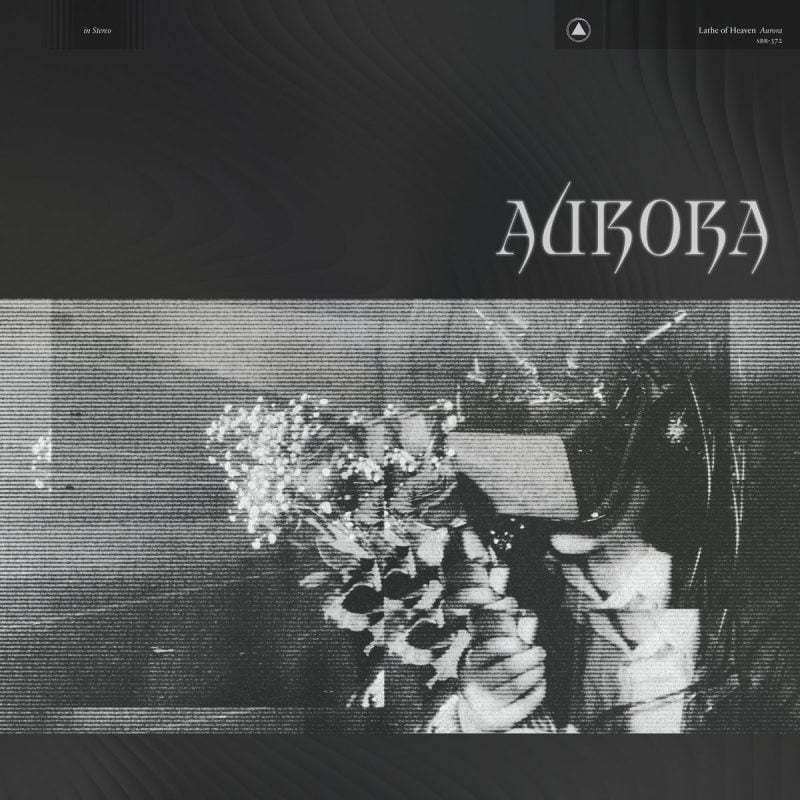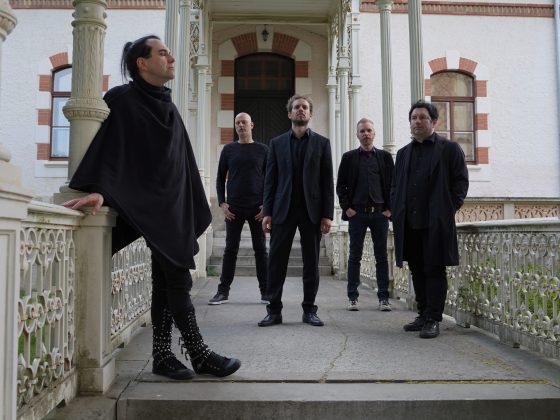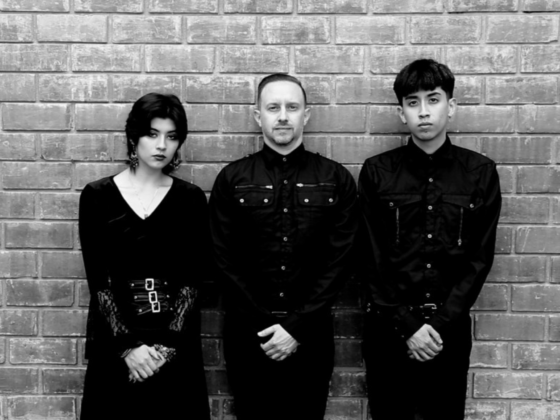Lost in pure devotion
Crossing oceans lying next to you
Lost in pure devotion
Tracing heaven lying next to you
NYC post-punk outfit Lathe of Heaven heralds the release of their eagerly awaited second studio album, Aurora, set to materialize on August 29th, 2025, via Sacred Bones Records. Marking a significant evolution, Aurora unfolds like an anthology of science fiction vignettes, each track capturing an emotional poignancy that holds up a fractured mirror, illuminating the depths and fragility of the human condition. Produced by Ben Greenberg at Circular Ruin and mastered by Brad Boatright, the record channels echoes of mid-80s British and Finnish post-punk through a glistening lens of 90s and contemporary underground pop, carefully balancing raw punk immediacy with polished new-wave allure.
The album’s title track opens as a luminous daydream gently propelled by buoyant drums and guitars awash in shimmering elegance. Frontman Gage Allison’s clear, pop-driven vocals spiral slowly upward through a chorus ringing bright with wistful beauty, evoking dreamlike textures reminiscent of The Ocean Blue’s Cerulean. Bucolic synths bubble and sigh beneath a melodic guitar hook that distinctly echoes The Cure, its chorused drone and jangling melodies threading effortlessly into Lathe of Heaven’s expanding alt-rock sensibilities—summoning that idyllic, eternal summer that lingered over the alt-rock landscape between ’87 and ’91.
On the single, Allison explains:
“A song loosely inspired by an Arthur C. Clarke short story called ‘If I Forget Thee, O Earth…’ In the story a man and his son take a trip from their colony on the moon to a lookout point where Earth (long abandoned due to nuclear war) can be seen rising across the vast gulf of space. Playing with this concept, I took a more personal and romantic approach, exploring similar themes of loss, love, and devotion at the end of the world.”
The accompanying visuals, directed by Devan Davies, plunge viewers into a haze of arthouse cinematics and glitch-infused imagery. Davies, drawing aesthetic inspiration from Blade Runner, THX-1138, and Tarkovsky’s cinematic poetry, particularly Chris Marker’s seminal La Jetée, captures a potent tension between proximity and detachment. Gage’s surrealistic visions blur boundaries between tactile memory and digital illusion, bolstered by Ali Yildiz’s hypnotic analogue manipulations.
“The passion and sense of longing I felt upon first listen, carved the path for me,” says Davies. “I wanted to stay grounded in that emotional core, and not worry about a complicated narrative. My entire approach was based on intimacy/distance, texture and tactility – to feel, not to think. It is all rooted in how our sensory experiences connect to our memories and emotions. It informed the approach of the sci-fi narrative element, where Gage experiences visions under surveillance from the rest of the band – a mix of memory and fabrication.”
Watch the video for “Aurora” below:
Aurora unravels like a curated anthology of short tales, each song illuminating a fresh perspective within Lathe of Heaven’s continuously morphing soundscape and introspective lyrical exploration. Drawing from the resonant echoes of mid-80s British and Finnish post-punk, along with subtle undertones of 90s underground pop and current alternative textures, Aurora charts new territory for the band. This album deftly negotiates a fine line between their raw punk energy and the polished glow of new wave and classic post-punk.
At its lyrical core, Aurora boldly confronts substantial themes. Imagined as interconnected science fiction narratives, it addresses topics of anti-colonialism, representation, and societal justice, inspired by literary titans such as Ursula K. Le Guin, Octavia Butler, Greg Egan, and Peter Watts. The songs transport listeners into imaginative, bold, and at times unsettling realms, prompting profound reflection about our collective human condition.
Though deeply entrenched in the traditions of post-punk, gothic rock, and darkwave, Aurora eludes easy labels. It achieves literary resonance without affectation, engages politically without becoming didactic, and offers genuine emotional depth without reservation. Each track acts like a fragment of a splintered mirror, presenting a dazzling, fractured beauty, reflecting back myriad forms and faces of human vulnerability.
Listen to Aurora below and pre-save the album here.
Follow Lathe of Heaven:
















 Or via:
Or via: